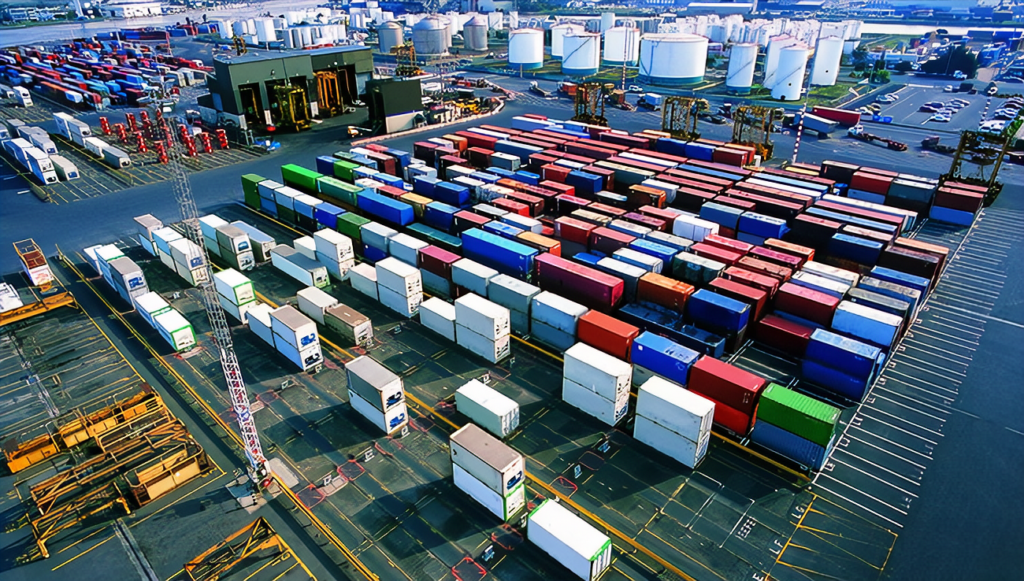- By TOP CHINA FREIGHT
- July 21, 2025
- Shipping
Singapore’s fast-paced, digital-first retail environment makes it one of Asia’s best markets for sourcing goods from China. From eCommerce platforms like Shopee and TikTok Shop to brick-and-mortar retail, Singaporean consumers are always looking for affordable, innovative, and trendy products.
If you’re an online seller, wholesaler, or first-time importer, knowing what to import from China can help you reduce risk and maximize profit. Below is a guide to high-demand, cost-effective, and practical products that consistently perform well in Singapore.

What to Import from China to Sell in Singapore
Here are some of the most popular and best-selling product categories to consider importing:
| Category | Product Examples | Import Cost (SGD) | Selling Price (SGD) | Profit Potential |
|---|---|---|---|---|
| Mobile Accessories | Cases, chargers, cables, mounts | $0.50 – $2.50 | $5 – $18 | High |
| Beauty & Personal Care | Facial rollers, hair removers, steamers | $1.50 – $4.00 | $10 – $30 | High |
| Home & Living | LED decor, organizers, mini humidifiers | $2.00 – $6.00 | $12 – $35 | High |
| Kitchen Tools | Silicone utensils, storage bags, sprayers | $1.00 – $3.00 | $8 – $25 | High |
| Pet Accessories | Grooming kits, toys, feeders | $1.50 – $4.00 | $10 – $28 | High |
| Fitness Gear | Resistance bands, rollers, mats | $2.00 – $6.00 | $12 – $35 | Medium to High |
| Fashion Accessories | Sunglasses, bags, hair accessories | $0.50 – $3.00 | $8 – $20 | High |
| Stationery & Crafts | Pens, planners, stickers | $0.30 – $1.50 | $5 – $12 | Very High |
Why These Products Work Well in Singapore
Home and kitchen products that save space are always in demand.
Accessories for smartphones and laptops are bought frequently.
Beauty gadgets, tools, and skincare accessories are strong sellers.
Portable fans, personal humidifiers, and cooling products see seasonal spikes.
TikTok and Instagram trends drive sales of novelty and lifestyle products.
Shipping from China to Singapore: Best Options
| Shipping Method | Delivery Time | Cost | Best For |
|---|---|---|---|
| Air Freight | 4–7 days | Moderate | Mid-sized bulk shipments |
| Sea Freight (LCL) | 10–14 days | Low | Larger cargo, non-urgent stock |
| Express Courier | 2–5 days | High | Urgent or high-value goods |
| Special Line / ePacket | 8–15 days | Low | Small parcels, dropshipping |
Pro Tip: Partner with a reliable freight forwarder in China to consolidate packages, reduce shipping costs, and simplify customs clearance.
Why You Need a Freight Forwarder
A good freight forwarder helps you:
- Get lower shipping rates
- Handle customs and taxes
- Avoid delays and hidden charges
- Coordinate with Chinese suppliers
- Offer warehousing or DDP services
Whether you’re shipping 50 pieces or a full container, a freight forwarder makes the entire process faster, safer, and more profitable.
Where to Sell These Products in Singapore
- Shopee SG & Lazada SG – Great for low-cost and trending items
- TikTok Shop – Excellent for impulse buys and viral products
- Carousell – Ideal for testing new products with minimal cost
- Own Website (Shopify, WooCommerce) – Build long-term brand equity
- WhatsApp & Live Selling – Popular with beauty, gadgets, and accessories
Final Thoughts
Importing products from China to sell in Singapore is one of the most effective ways to start or grow a profitable business. With the right product selection and logistics partner, you can scale quickly and tap into one of Southeast Asia’s most reliable markets.
If you’re ready to source, brand, and ship profitable items from China — make sure you have the right freight forwarder on your side to ensure smooth delivery and better margins.
Need a Shipping Quote?
Click below to get a free, no-obligation quote from TJ China Freight.
We’ll respond within 24 hours with the best shipping options for your cargo.
FAQ:
Q1: What is the best product to import from China for the Singapore market?
Products like mobile accessories, beauty tools, and LED home gadgets consistently sell well due to their practicality and strong demand.
Q2: Do I need a business license to import into Singapore?
For small personal imports, no license is needed. But to scale, you’ll want to register your business (ACRA & UEN) for customs declarations and tax compliance.
Q3:What does SG import from China?
Singapore imports a wide range of goods from China, including electronics, machinery, mobile phones, household items, clothing, plastics, and raw materials. On the consumer side, products like gadgets, appliances, accessories, and personal care items are popular for resale and retail.
Q4:What does Singapore import the most?
he largest categories of imports into Singapore are:
- Electrical machinery and equipment
- Mineral fuels and oils
- Machinery, nuclear reactors, and boilers
